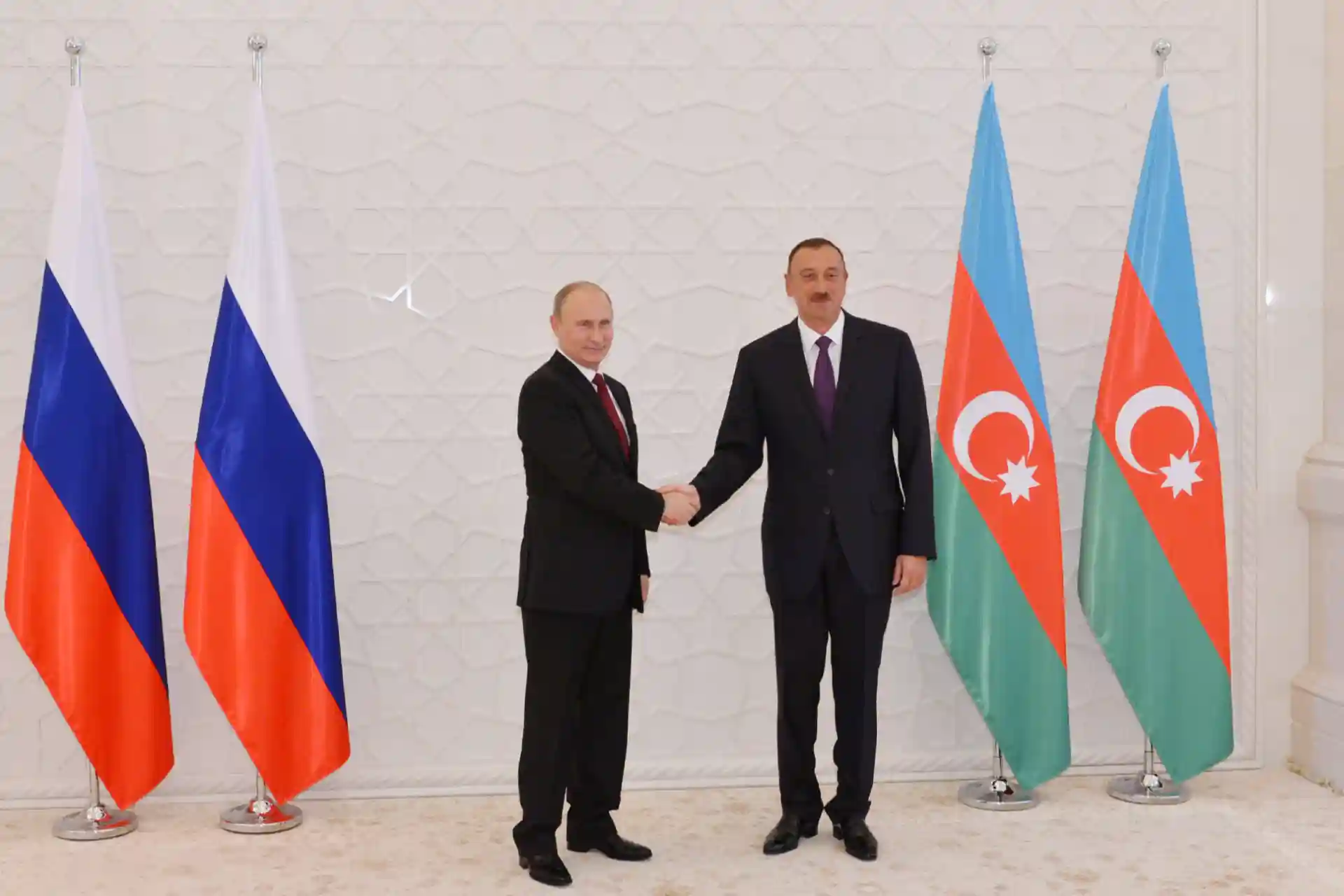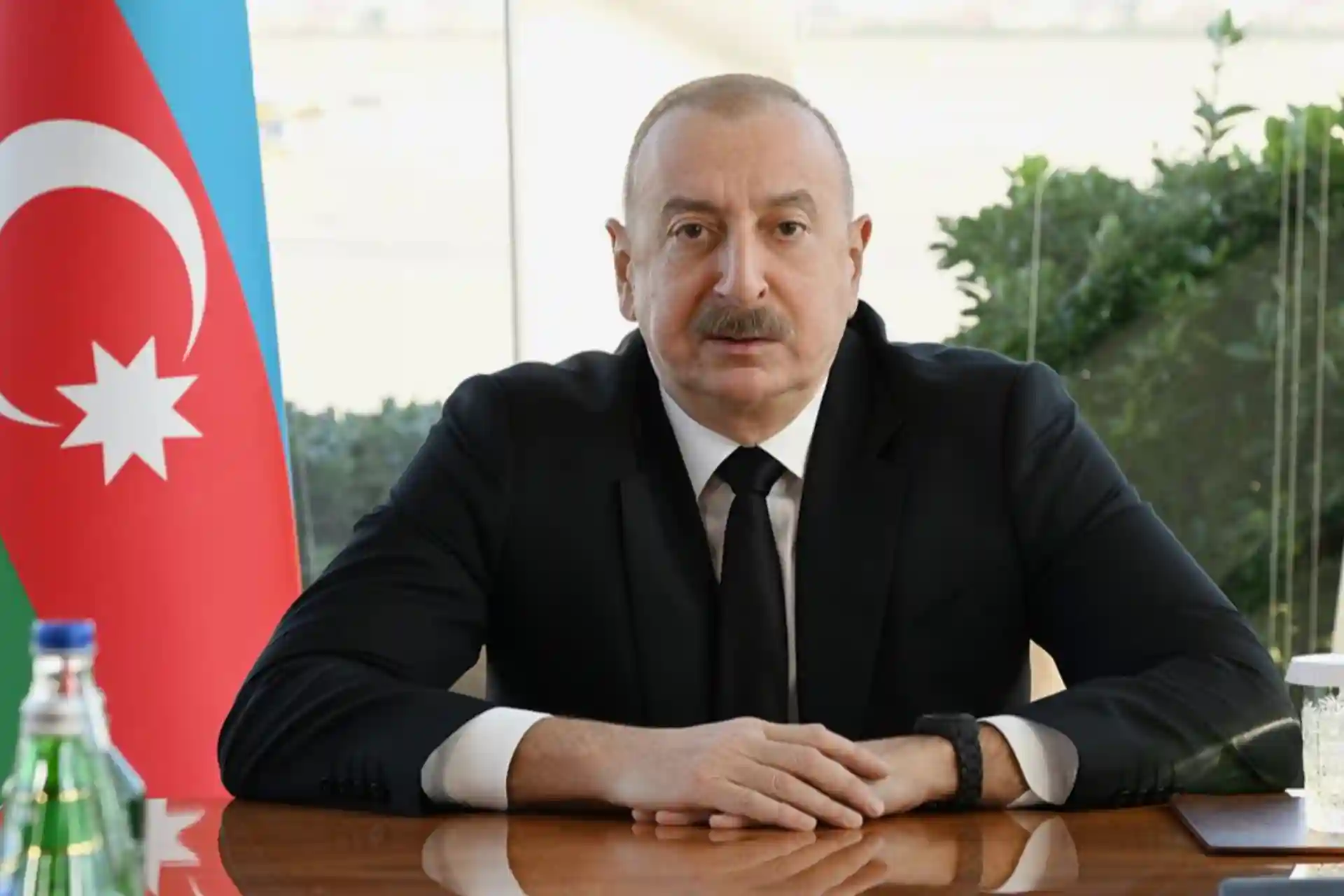Analysis: Will the plane crash cast a shadow on Russian-Azerbaijani relations?
The ongoing tensions between Russia and Azerbaijan following the downing of a plane have been drawing much attention. President Ilham Aliyev's sharp and loud protests to Moscow, his toughening of visa requirements for Russian citizens, and his threatening statements about his intolerance towards Armenian fascism have led to speculation about whether they will cast a shadow over the Russian-Azerbaijani alliance. However, one cannot always agree with these views.
Let's prove our point with evidence. First, Russia's shooting down of an Azerbaijani plane will cause a cooling of relations between the two, but will not change Baku's geopolitical course. Azerbaijan is connected by close economic ties with Russia. The mutual trade turnover is around $1.5-2 billion. The Russian Federation is Azerbaijan's third largest trading partner after Italy and Turkey. Secondly, hundreds of thousands of Azerbaijani labor migrants live in Russia. They earn their living.
Thirdly, during the Armenian-Azerbaijani war, in other words, during the Patriotic War, Russia remained neutral. It did not deploy S-300 anti-aircraft missiles in Karabakh and Armenia. It left Armenia to its fate. Yerevan expected Russia to protect them. Armenia even came up with provocations so that the CSTO troops could defend themselves. It sought to allow Azerbaijani soldiers to set foot on Armenian territory. However, for Russia, which was preparing for a war against Ukraine, it was as necessary as air and water for Azerbaijan to stand on its side, or at least remain neutral. And so it happened.
On February 22, 2022, a Declaration on Allied Relations between the two countries was signed in Moscow. This confirms the readiness of either side to hold consultations in the event of a threat to the security interests of either side.
Fourth, recent events in the Caucasus have confirmed that Baku is still in Moscow's political orbit. Russian troops were deployed in Shusha to end the Armenian-Azerbaijani war. Another ally of Azerbaijan, Turkey, deployed 75 unarmed soldiers.
Fifth, the trilateral agreement signed on November 9, 2021, envisages the creation of the Zangazur corridor connecting Azerbaijan with the Nakhchivan enclave. To do this, Armenia must open a road from its Syunik region to Azerbaijan, with the Russian Federal Security Service troops taking on a supervisory role in the middle. Both Russia and Azerbaijan are interested in the opening of this corridor.
Sixth, during Putin's visit to Baku in August 2024, it was achieved that a certain part of the Russian gas and oil under sanctions will be sold to Europe through the SOCAR corporation. In addition, agreements have been reached between Russia and Azerbaijan on the implementation of dozens of other major economic projects. Thus, the plane incident, the results of the investigation of which have not yet been announced, will not cast a shadow on the relations between the two countries.
In fact, such incidents happen all the time between other countries. This is not the first time. True, Russia admitted that it made a mistake and Russian President Vladimir Putin apologized to Ilham Aliyev. No matter how much third parties try to muddy the waters, the problem will gradually come to light. After the results of the investigation are announced, Russia will definitely pay compensation to the dead and surviving crew members and passengers for the downed plane and punish the guilty. Because Russia also values its relations with Azerbaijan. This may not be the case in the distant future, but in the current conditions of the ongoing war in Ukraine, Moscow will not go to war with Baku. If it treats the Ukrainian issue unilaterally, Moscow will inevitably resort to the path of pressure and coercion from above on the former Soviet republics. Today, Azerbaijan, with a population of 10 million, is one of the most active countries of the Non-Aligned Movement and always adheres to this policy in its foreign policy concept. Last year, Azerbaijan also hosted a major summit of the Non-Aligned Movement. This policy currently satisfies Russia.
Today, to muddy the waters, Azerbaijan has demands from Russia, and Baku wants these demands to be met, while the other two demands are being ignored by the Russian side. Now the main demand is that compensation should be paid to both the dead and the survivors. However, according to international law, this demand will be fulfilled after the investigation is completed and the official results are announced. However, Russia has not said that it will not fulfill the demand. Moreover, there were also Russian citizens on board the Azerbaijani liner. As the President of Azerbaijan has repeatedly stated, Russia did not deliberately organize the incident. Therefore, the demand for compensation and punishment of the guilty military personnel will also be fulfilled.
As for the criticism of Ilham Aliyev, who keeps Azerbaijan independent of various alliances, when he comes to power, he criticizes both the West and Russia. At the UN summit (SOR29) on international climate issues, President Aliyev accused the West of hypocrisy due to accusations of human rights violations. The fact is that despite the continuous supply of oil to the West, they, in addition to accusing Baku of human rights violations, continue to supply Yerevan with modern weapons. France stands out in particular in this regard. These actions also push Baku into the arms of Russia.
Recently, Moscow has been giving the impression that it is strengthening its influence in the South Caucasus. There are three states in the South Caucasus. Armenia, although it seems to be acting independently. But it is still dependent on the Russians for security and energy issues. In Georgia, the Georgian Dream party, which advocates rapprochement with Moscow, won. They have completely taken power. The same is true in the case of Azerbaijan, where the downing of a single plane is not a reason to change Baku's foreign policy. On the contrary, the strong rhetoric of the Azerbaijani president was also aimed at calming the public, which is dissatisfied with the Russians. Keeping silent about the incident could also cause public protests. Most importantly, the AZAL crash has put bilateral relations to another test.
Another thing. Today, Baku is pursuing a much bolder and more independent foreign policy than other countries in Central Asia and the Caucasus. In this regard, one could say that Ilham Aliyev is giving a master class to the leaders of these countries.



